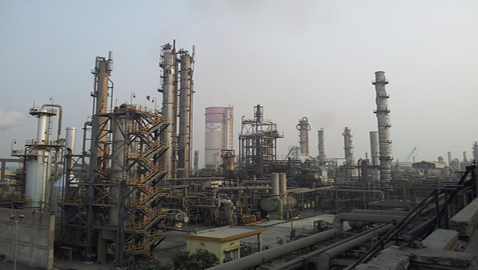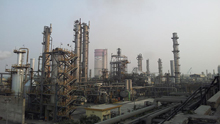 In a significant move towards augmenting the domestic urea capacity, four public sector undertakings– GAIL (India) Ltd, Coal India Ltd, Rashtriya Chemicals and Fertilisers Ltd and Fertiliser Corporation of India Ltd–have signed joint venture agreements to set up an integrated coal gasification and fertiliser and ammonium nitrate complex at Talcher in Odisha.
In a significant move towards augmenting the domestic urea capacity, four public sector undertakings– GAIL (India) Ltd, Coal India Ltd, Rashtriya Chemicals and Fertilisers Ltd and Fertiliser Corporation of India Ltd–have signed joint venture agreements to set up an integrated coal gasification and fertiliser and ammonium nitrate complex at Talcher in Odisha.
The joint venture agreements were signed in the presence of Minister for Chemicals and Fertilisers Ananth Kumar, Minster of State for Petroleum and Natural Gas (Independent Charge) Dharmendra Pradhan, and Minister of State for Power, Coal and New and Renewable Energy (Independent Charge) Piyush Goyal among others.
GAIL, RCF, CIL and FCIL, on September 5, 2013, had signed an MoU for jointly setting up a fertiliser and ammonium nitrate complex at Talcher.
The first joint venture, GAIL Coal Gas (India) Ltd, will be led by GAIL and will be responsible for setting up the upstream coal gasification and gas purification section to produce ammonia syn gas for downstream fertiliser unit. The estimated cost of this project is Rs.3,000 crore. GAIL has invited Expression of Interest to select technology for coal gasification. This will be finalised by the end of January, 2015.
The second joint venture, Talcher Chemicals & Fertilizers Ltd, will be managed by RCF and will be responsible for setting up ammonia-urea, nitric acid-ammonium nitrate plants at an estimated cost of Rs.6,000 crore. The majority stake will be held by RCF and CIL. The project comprises a 3,850-tpd urea plant, a 2,700-tpd ammonia plant, an 850-tpd nitric acid plant and a 1,000-tpd ammonium nitrate plant. While GAIL will put up the coal gasification plant, RCF and CIL will put up the other downstream plants of ammonia-urea, nitric acid and ammonium nitrate.
Once the detailed feasibility study is ready, construction activity is likely to start in 2015-16 and complete by 2019.
The Government of India is identifying a suitable coal block in the vicinity of the project site after which the Ministry of Coal will allocate the block.
According to the government, the project is of strategic importance for India as it aims to make a breakthrough in alternative source of feedstock in the form of abundantly available coal from domestic sources. As per available statistics, the total coal reserves in the country are around 300 billion tonnes with recoverable reserves of 173 billion tonnes. Thus, potential exists for converting these reserves into value-added products like syn gas for use by fertiliser and power plants at affordable prices.










